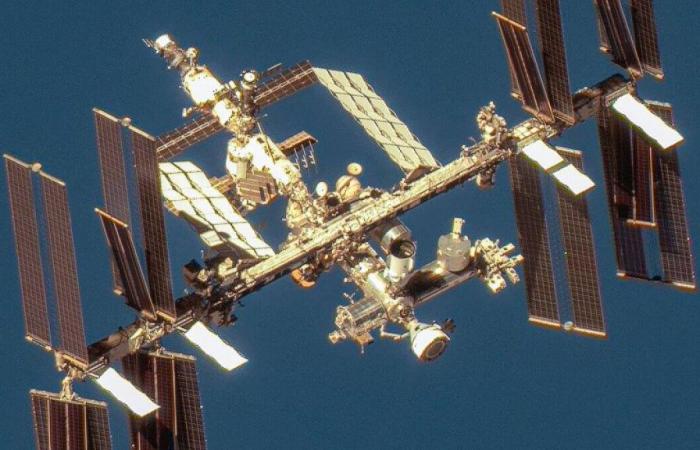NASA announced on Wednesday that it had selected SpaceX to build a vehicle capable of pushing the International Space Station back into the Earth’s atmosphere, allowing it to be destroyed after its retirement in 2030.
• Read also: Family demands $80,000 from NASA for space object that fell on their home
• Read also: Return to Earth from June 26 for Boeing’s Starliner spacecraft
The contract won by Elon Musk’s billionaire company has a total value of up to $843 million, according to a NASA statement.
The US space agency has previously announced its intention to plunge the International Space Station (ISS) into the Earth’s atmosphere over an ocean after its end of life. Some pieces will disintegrate during the maneuver, others, more resistant, will end up in the sea.
But this operation requires the development of a powerful vehicle, capable of maneuvering a space station weighing some 430,000 kg.
The SpaceX vehicle should make it possible “to deorbit the Space Station and avoid any risk for inhabited areas,” NASA said.
Just like the ISS, this vehicle should break up upon re-entering the Earth’s atmosphere, the space agency said.
Once developed, it will belong to NASA, which will be responsible for operating it during its mission.
The United States, Japan, Canada and the Europeans have committed to continuing operations of the ISS until 2030. Russia has so far committed until 2028.
“Safely removing the International Space Station from orbit is the responsibility of the five space agencies,” NASA soberly wrote on Wednesday.
Despite the war in Ukraine, the ISS remains one of the rare areas of cooperation between Washington and Moscow.
In April, during a hearing at the American Congress, NASA boss Bill Nelson nevertheless stressed the need to develop such a vehicle quickly in the United States to ensure the end of the ISS.
In six years, “will we still have the same relationship to be able to bring it down with the Russians? We cannot count on that,” he said.
“So we need to start now to build this American deorbit vehicle that could bring the whole station down safely so that it doesn’t hit anyone or anything,” he added.
The flying laboratory has been permanently inhabited for more than 20 years.
After 2030, the United States is banking on private space stations in low Earth orbit, which could accommodate NASA astronauts as well as other customers. Several American companies are already working on these projects, including Axiom Space and Blue Origin.






